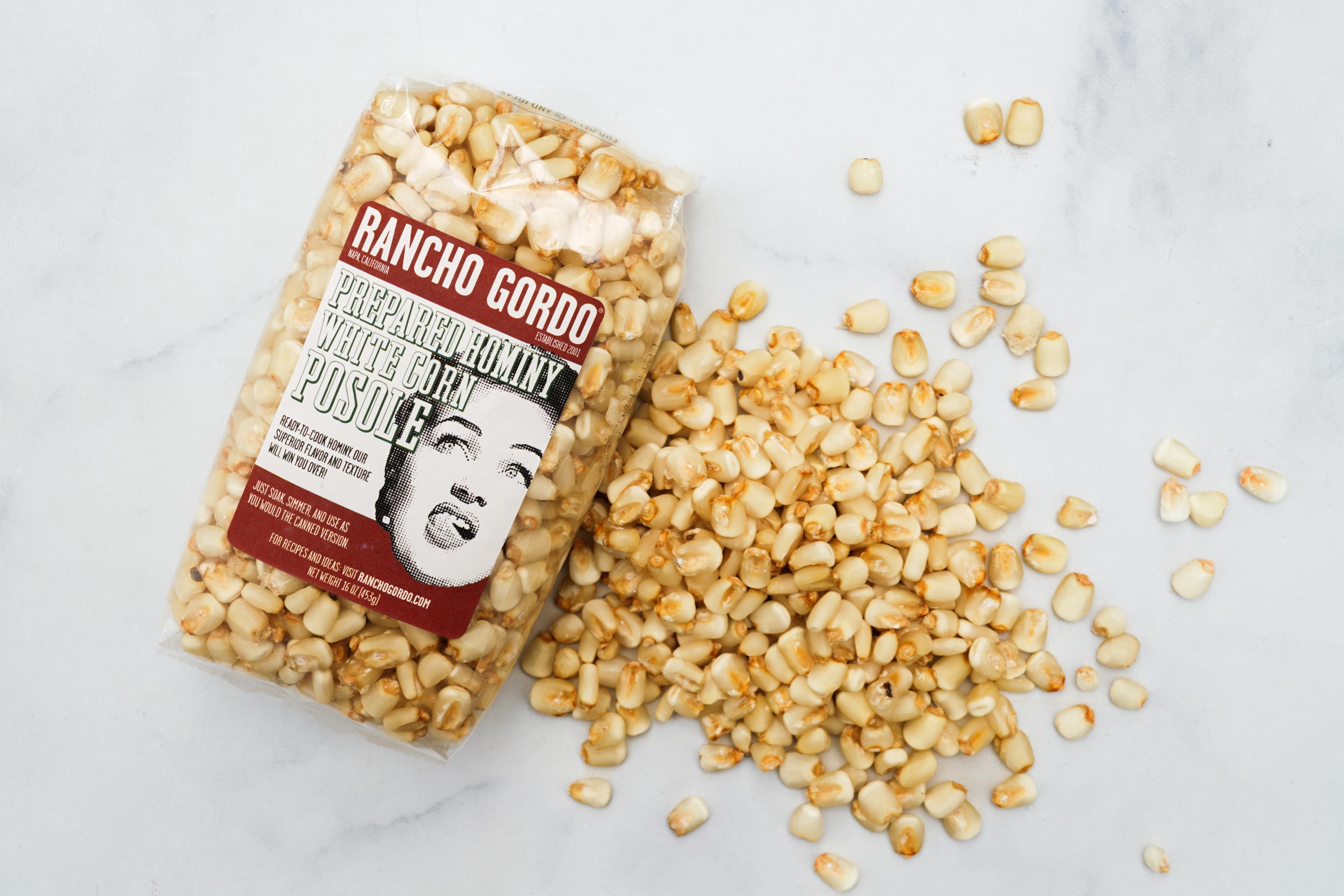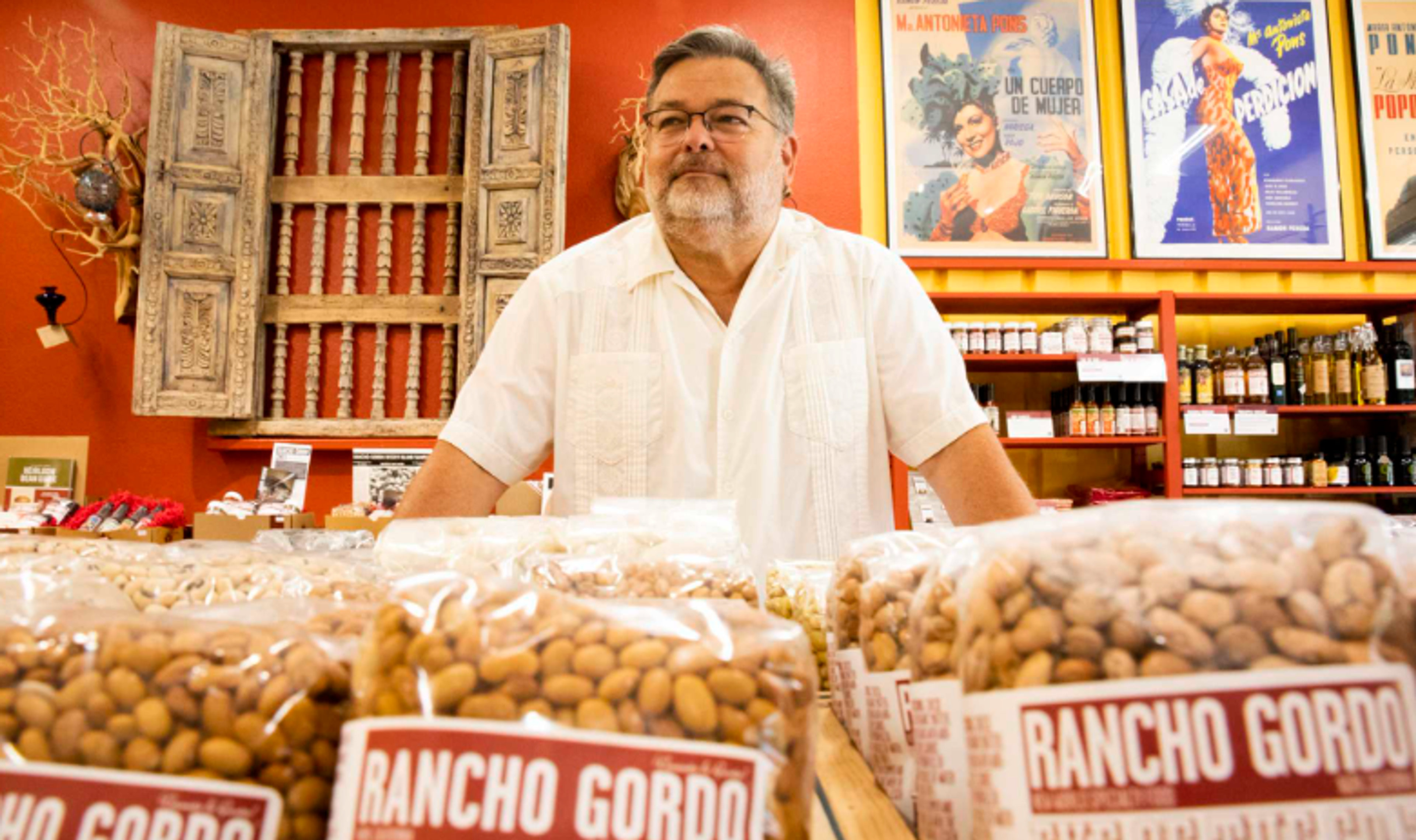After a gentle simmer, dried hominy opens up like a delicious flower and is ready to use in soups, stews and the classic southwestern and Mexican dish, Pozole (or Posole). The corn is prepared by soaking in mineral lime (cal), then removing the skins. This process, called nixtamalization, changes the flavor (for the better) and introduces the vitamin niacin, making this ancient grain healthier and more nutritious than simple corn or cornmeal. Sort and rinse hominy.
Soak for 8 hours in cold water, then drain. Add to a large pot with 1 roughly chopped onion and cover with 2 inches of fresh water. Bring to a hard boil over high heat for 5 minutes, then reduce to a gentle simmer. Cook hominy uncovered until chewy and tender but not chalky, approximately 2 hours. Hominy usually flowers, like popcorn, when finished. Reserve 2 cups of cooking liquid for later use, then drain. One pound (or 2 cups) dried hominy yields about 7 cups when cooked, and substitutes for canned hominy in recipes with none of the rubbery texture.

